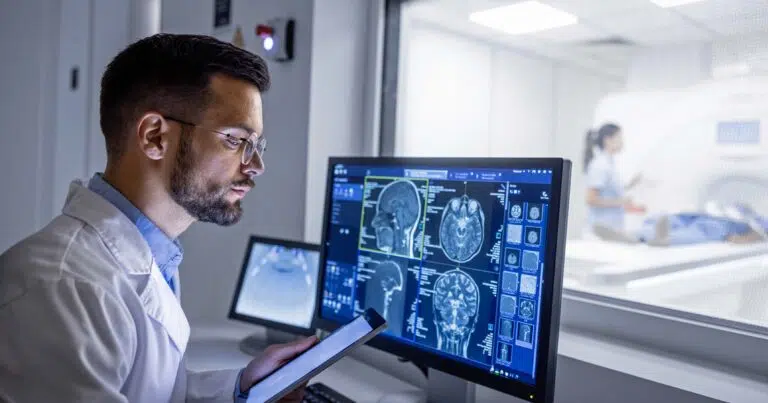EP Tech Career Guide
Looking for a different career guide?
Overview
An Electrophysiology (EP) Technician is a specialized allied health professional who assists in the diagnosis and treatment of heart rhythm disorders and conditions. EP Technicians work closely with cardiologists and other members of the healthcare team to perform various procedures, such as cardiac catheterizations, electrophysiology studies and ablations. Their expertise is crucial in identifying and mapping electrical abnormalities in the heart, aiding in the implementation of appropriate treatments for patients with arrhythmias and other cardiac conditions.
Essential Job Functions:
Assisting cardiologists during electrophysiology procedures
Preparing and calibrating equipment for EP studies and ablations
Monitoring patients' vital signs during procedures
Analyzing and interpreting cardiac data and electrocardiograms (ECGs)
Maintaining accurate patient records and procedure documentation
Educating patients about EP procedures and post-procedure care
Collaborating with the healthcare team to ensure patient safety and comfort
Education
To become an Electrophysiology Technician, you need to pursue a formal education in cardiovascular technology or a related field. One of the common educational paths is obtaining an Associate Degree in Cardiovascular Technology, which typically takes about two years to complete. This program provides comprehensive coursework in cardiovascular anatomy and physiology, electrophysiology principles, ECG interpretation, cardiac medications and invasive cardiovascular procedures. Additionally, students gain hands-on experience through clinical rotations in electrophysiology labs or cardiac catheterization labs.
Qualifications

Skills
Staff and Travel Electrophysiology Technicians need a diverse set of skills to excel in their role. They must have a strong understanding of cardiovascular anatomy and physiology, particularly concerning the electrical conduction system of the heart. Proficiency in operating and calibrating specialized EP equipment is essential for accurate data collection. EP Technicians should be skilled in interpreting ECGs and other cardiac data, as well as identifying abnormalities and arrhythmias. Effective communication skills are vital in educating patients about procedures and post-procedure care. Attention to detail and the ability to work in a fast-paced, high-pressure environment are crucial in ensuring patient safety and accurate data collection during EP procedures.
Responsibilities
The responsibilities of an Electrophysiology Technician are diverse and integral to the successful diagnosis and treatment of cardiac rhythm disorders. They assist cardiologists during EP studies and ablations, ensuring that equipment is properly set up and calibrated. During procedures, they monitor patients' vital signs and cardiac data, providing real-time feedback to the medical team. EP Technicians play a significant role in maintaining accurate patient records and procedure documentation for future reference. They also collaborate with other healthcare professionals to ensure patients receive comprehensive and effective care.
Salary Insights
The average salary for a EP Tech is $2,654.14 per week.
Last updated on March 17, 2025. Based on active jobs on Vivian.com.
Pros & Cons
Pros of being an Electrophysiology Technician include the opportunity to work with cutting-edge technology and be part of a specialized team in the cardiology field. This specialty offers job stability and potential for growth as the demand for EP services continues to rise with an aging population. EP Technicians often experience a high level of job satisfaction, knowing they contribute to improving patients' quality of life.
However, there are some challenges associated with this specialty. EP Technicians may encounter high-stress situations during emergency procedures or complicated cases. The hours can be irregular, as EP procedures may be scheduled during weekends or holidays. Additionally, working in an invasive cardiology environment may expose EP Technicians to potential occupational hazards.
In conclusion, becoming an Electrophysiology Technician requires pursuing an education in cardiovascular technology, obtaining relevant certifications and gaining hands-on experience in clinical settings. EP Technicians need a combination of clinical knowledge, technical skills, effective communication
Some of the content on this page was enhanced using artificial intelligence.
Join over 1 million healthcare workers that are getting a head start with Vivian.
Join Vivian





